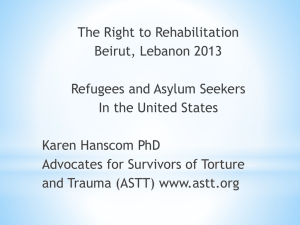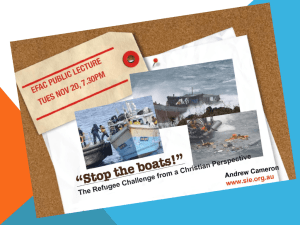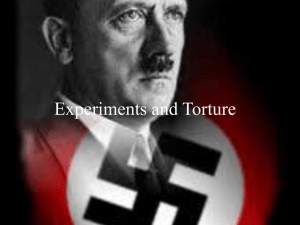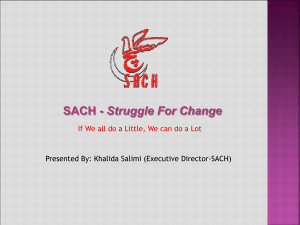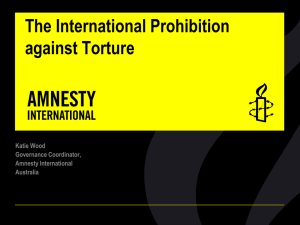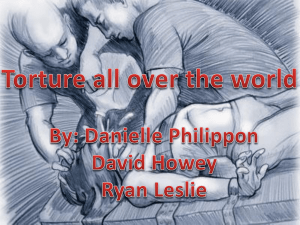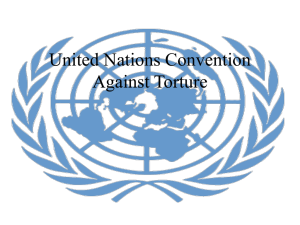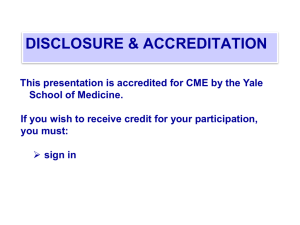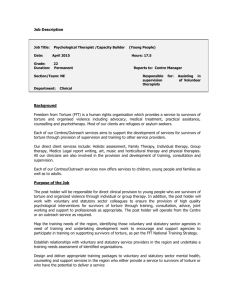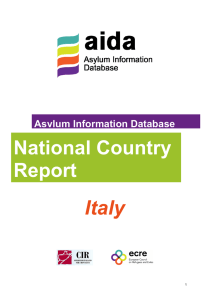Semi state-led rehabilitation of torture survivors
advertisement
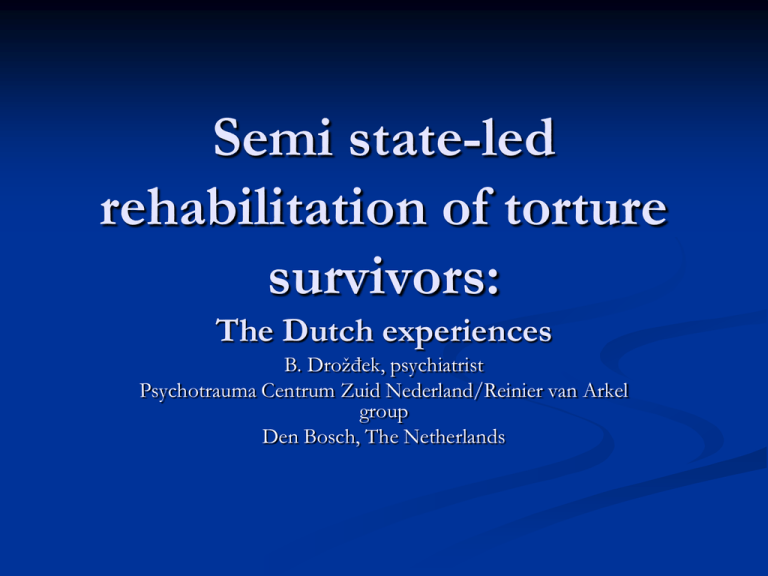
Semi state-led rehabilitation of torture survivors: The Dutch experiences B. Drožđek, psychiatrist Psychotrauma Centrum Zuid Nederland/Reinier van Arkel group Den Bosch, The Netherlands Torture survivors in the Netherlands Asylum seekers Refugees Illegal immigrants Dutch Army UN soldiers (POW) Survivors of Japanese concentration camps (WW II) Seeking asylum in the Netherlands? 2002: 2005: 2013: 83.000 30.000 14.800 Due to restrictive governmemnt policy! At the cost of human rights and international standards and conventions? Voices of survivors “I was tortured in my home country, but this is worse! In the Netherlands, I am tortured with documents, letters, and endless waiting for legal recognition. They do not trust my story, they want more and more proofs of what I have been through in the past. As if I had time to plan my departure!” Voices of survivors “While I have been tortured in my home country, the worst was waiting for physical torture to take place, sitting in my prison cell and listening to sounds. Here, I wait for years in my tiny room in a reception centre, I can’t work, they do not allow me to learn the language, I have nothing to do, but to wait …. for the next letter by immigration authorities, next call for the court. On Tuesdays, police enters the centre, and takes people away to repatriate them. Noises again, crying, violence, I can not stand this any more!” Procedure of seeking asylum Lasts for many years No right to work No right to learn the Dutch language Limited access to community Social marginalization Restricted access to medical services Waiting in passivity! Population of illegals is growing Let’s shorten the length of an asylum procedure! Shorter asylum procedure (8 days) – superficial? Asylum seekers/torture victims disappear – illegality, closed repatriation centres Many doubts with regard to interview techniques (suggestibility, insensitivity, rules of conduct) Commentary on the sixth periodic report on the implementation of the UN Convention Against Torture and Other Cruel, Inhuman or Degrading Treatment or Punishment (May, 2013) Fast 8-days asylum procedure (6-days rest prior, lawyer contact only once prior to hearing, hearings on days 1 and 3 – not enough for complex cases and children, documentation must be presented within a week time, submission of additional information restricted, initial health check insufficient for determining torture sequelae No data on accepted asylum applications on grounds of torture (not registered) Illegal migrants detention limitless (de facto 18 months), and high rates for EU Commentary on the sixth periodic report on the implementation of the UN Convention Against Torture and Other Cruel, Inhuman or Degrading Treatment or Punishment (May, 2013) Lack of implementation of the Istanbul Protocol (denying causality between torture and MH problems) Criminalization and humiliation in aliens’ detention – handcuffs, and strip search on entering/re-entering, isolation of hunger strikers No transfer of medical data upon release/continuity of care endangered Rehabilitation of torture survivors in the Netherlands Screening by medical staff within reception centres(staff employed by COA/immigration sevices), very limited opportunities for psychosocial rehabilitation within centres, legal services insured by government Referral to standard Dutch mental health facility Referral to specialized trauma treatment centres (3) for outpatient and clinical treatment Pitfalls of the current approach Lack of knowledge on torture sequelae, lack of trust in “trauma narratives”, screening and recognition compromised, limited resources for empowermentoriented activities in the centres and community building Restrictive criteria for referral from reception centres (government and insurance company) Policy of making the stay in the country as unpleasant as possible, but within confines of international regulations Pitfalls of the current approach Medicalisation of problems (recognition based on psychopathology, not on torture, humanitarian vs. political solution) Stepped care instead of matched care – undertreatment Holistic approach in a compartmentalized overall system (communication between IND, medical advisors to IND, mental health services) Pitfalls of the current approach No care at all, and just a limited cure! In the context of a country with highly developed mental health services for PTSD and related problems, and influential scientific production Paralysis of knowledge by policy! New organization of mental health services for asylum seekers 3 specialized 3rd line mental health treatment centres organize the system of care: offer treatment for the most complex cases, consultation to the 2nd line (culture-sensitive, contextual diagnostics) education of the 1st line – screening and signaling choose a set of screening instruments Limit number of 2nd line mental health partners, but improve their knowledge Focus on community care in reception centres (is there a community? Can culture be changed?) System of mental health care for asylum seekers in the Netherlands Complexity Specialization Costs 3rd Line *supraregional *specialist care referrals educationcation 2nd Line *regional MH care referrals 1st Line *within reception centres *cure (diagnosis, medication, symptomatic treatment) *prevention (psycho-education, courses, empowerment) 1st line and prevention *easy access, outreaching *cure (family doctor, social work) *prevention (reception centre staff) Universal prevention *Material (money, food, housing) *Social (activities, school, safety, social support) *Legal (asylum procedure) With regard to the implementation of article 14 as of rehabilitation Torture victims are not adequately assessed and recognized among asylum seekers Medical professionals are employed by immigration authorities Social rehabilitation is marginalized Legal system works against! Compartmentalisation paralyses holistic rehabilitation Efforts to make it comprehensive (holistic) only at the top medical/psychological level in the chain of care Refugees/torture victims have no right to use free interpreters The cross-cutting issues Availability: yes, but problems with adequate identification and referrals Appropriateness: comprehensive, but only at the top level of national centres; enough choice, needs not structurally evaluated Accessibility: open, safe, but sometimes unreachable; State agents disable recovery environment
